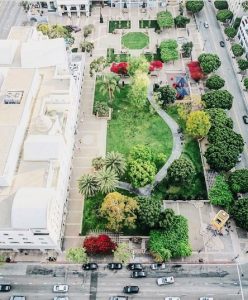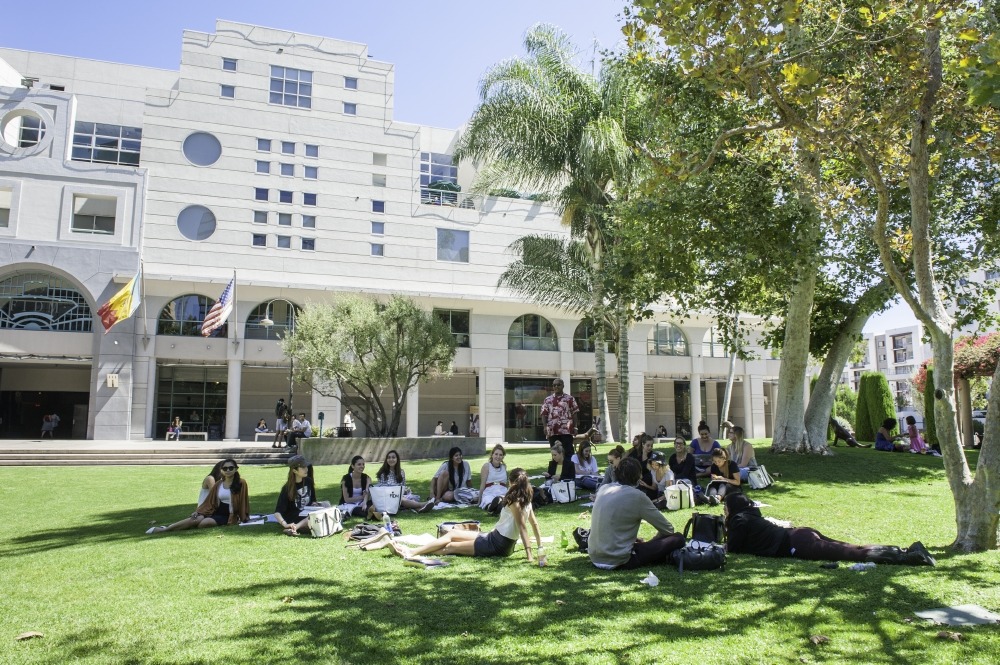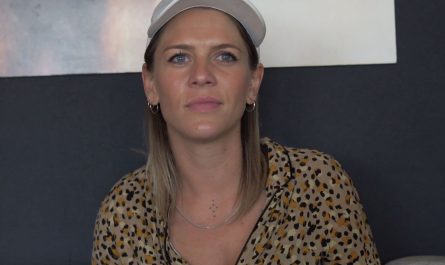Welcome back,
To continue our weekend special in this second episode I am talking to one of the most important people in an international student’s life at FIDM.
If you haven’t read the first part of this weekend special yet where I talked to Sarah Repetto the International Affairs Director at FIDM go ahead and click the link below:
>>> Weekend Special Part 1 <<<
I am happy to introduce you to Ben Weinberg, the International Student Director at FIDM Los Angeles.
He is the primary designated school official and thus responsible for all the legal documentation and much more for incoming international students.
What does being an international student director entail?
B: I am in charge of everything from orientation to graduation in regards to international students. I am directly liable for everything the school does and ensuring both individual and institutional compliance with federal regulations. Which means I make sure both the students and the school are following their minimum requirements. Like, Are the students take enough amount of units? Are they making normal progress toward degree completion? Is there continuity in their program? Do they take breaks? Are they entitled to the breaks? Are they getting registered in the system every quarter? …
Also to develop the international students’ progress through the program and create student incentives and academic support programs starting it at visa issuance. Where you correctly informed on how to obtain a visa afterwards? Did you have a comprehensive orientation program that explained to you what was going to be required for you to maintain that status and what your benefits and obligations were? Do you have support systems in place that helped foster the program completion?
How do you add to the internationalization of the campus? How is your presence integrated into the overall purpose and goals of the institution as it meets?
Have you had any personal experience living abroad?
B: I grew up on a tiny little island in Hawaii and I went to college on my tiny little island. When I graduated from college, I spent six months backpacking through Europe, and that was one of the most educational experiences of my life. When I saw a greater part of the world, it was an eye-opening experience that taught me a lot. I would suggest, whether you are studying abroad or not, some type of experience where you immerse yourself in a different culture. It will be incredibly educational, teach you how to grow up, be accepting, taking different points of view and add to your overall understandings of life not just from a limited perspective of your own environment.
Did that experience have anything to do with how you ended up in this position? Do you think you will ever want to change?
B: I got this job in a total fluke. My background is in law, I was working for the city attorney’s office, then worked for a production company then started bartending. A friend of mine told me about this job, set the interview up for me, I had never filled out an application. I just thought that was the stupidest thing me working at a fashion college and then 20 years later, I’m still here.
I can’t imagine doing anything else now, I like what I do because I like working with international students. You are very bright, committed to your purpose, you work very hard and you’re very respectful and courteous. So it’s a pleasure to go out of my way to create programs that help you and to assist you just because the kind of calibre of students that you are is exemplary.

What is the international, local ratio per semester at FIDM?
B: We have two different offices, one is our incoming international student population and then one is our student exchange. So our international students represent about 20% of the overall population. With our straight student exchange this quarter, we were supposed to have eight exchange students, which is more than usual.
Why is it important for FIDM to have such a significant international student body?
B: It’s important for your institution to have a very diversified student body because not only do you learn from your education, but you learn from each other. So if you’re going to a school with all the same type of person that’s no different than you. You’re not benefiting from that experience.
With the world being as global as it is, your students need to have an international perspective. People from different walks of life, different religions, belief systems, socio-economic backgrounds, ethnicities so that they can learn and benefit from the experience. You benefit from seeing things from different ways of thinking, education needs to incorporate aspects of the whole world. So every college across the globe has an interest and a duty to maintaining an international curriculum.
Any initiatives coming up on an international student level?
B: We’d like to integrate our international student body even more into our domestic so that they don’t feel any different in terms of how we educate. Your teachers are not going to treat you differently or teach you any differently than the American students sitting next to you. The goal here is to educate everybody in any uniform way that applies to every walk of life from anywhere in the world.
How do you make sure that integration goes smooth?
B: That’s where students support systems come into place. Taking into account the students’ circumstances, not enabling them but facilitating a better transition.
Did they have their separate orientation program since their issues are different and they need to be directly addressed? Do they have somebody who has an open-door policy that they can consult with regularly about the issues that are specific to them? Are they able to share their cultures and celebrate their cultures so that they’re embraced as a community? Does the individual feel a part of the community? …
Because you are a member of our college community and it’s one family, we’re supposed to be unified in that goal.
Are there any trainings or audits for the school to make sure international students get the best support?
B: Yes, there are tons. I am licensed by the Department of Homeland Security to be the primary person on our campus to handle all federal regulations in regards to international student administration. So I am constantly checked on, I have surprise inspections from the Department of Homeland Security. They check all my records, make sure I’m doing things correctly.
There are many conferences. There is the National Association of Foreign Student Administrators which is a huge part of what I do, I presented and I’ve attended many of their conferences. There’s a local conference, where all the LA colleges, we all meet together three or four times a year we share information because Federal rules particularly in regards to immigrants, can be somewhat convoluted and constantly changing. So you learn how to navigate through that system and start relying on your colleagues and work together to figure out the rules and make sure that you are all applying them uniformly. So, yeah, there is tons of support.
At our school I test everybody that handles international students, I give them a comprehensive F-1 test that deals with all of the regulations. If they don’t score 75 or higher, they can no longer work with international students.
What are some common difficulties that students face when dealing with the application process?
B: We try to make the application process as easy as possible, regardless of where you are coming from. What’s harder for the student is to understand best practices for visa acquisition. When you got your F-1 visa and when you go through that whole process, that’s where you folks need the assistance the most trying to navigate through that.
What is one thing you wish international students would know?
B: Just be prepared for the situation. This is a cultural and educational experience, it’s also leading to your independent living skills. A lot of students come over here they haven’t had a lot of experience living independently now they’re in a foreign country without a family, without a support group.
You have to be open to the experience from every different perspective, whether it’s developing your independent living skills, your academic development, your career development or your cultural understandings.
Readers’ Mail:
The first question comes from a previous guest on the show, Ben, make sure to read his interview if you haven’t already. What mindset incoming international students should have so they can have the best experience?
B: There are different phases of that process. When you initially get here, you’re in somewhat of a utopian phase. It is exciting and it’s new like when you are on vacation, once the realization of the experience sets in, a lot of students tend to go into culture shock. You know, this place is so weird for me. I don’t understand. Words mean multiple things, people are strange. The money is strange, the food is strange.
It takes a transition so the first part, you try to get them to more or less assimilate and not isolate, don’t just sit in your apartment by yourself, go outthere, take advantage of the city. It’s a multi conglomerate city it’s multi-ethnic.

There are all kinds of things for all kinds of people. Get out there go to the beaches, go to the mountains, go to the museums, go to bars. Whatever it is that interests you, don’t isolate yourself and make friends that are not just from your country. So that this is a cultural experience for you, too, not just educational.
You need to first get over that initial culture shock and move into a balanced appreciation where you’re taking the best aspects of your own culture combined with the best aspects of our culture to produce something special. Have to get international students to understand our culture so they can find the humour in it rather than judging us. Then you want them to not only survive but thrive in their new environment, you want them to be able to make the most out of this. And they learn as much as they could learn. Were they aware of all the opportunities that that was before them? Because so many students, they all want to stay in this country afterwards. How are you going to do that? You can start your own business. Are you going to get sponsored? Do you know what all that entails? Are you going to make investments?
So it’s kind of like a three-phase project.
- You get them when they first come in, help them adjust and get through their culture shock and moving to appreciation.
- Then you get them through the program, making sure that barriers that exist are adequately addressed and that there is a support system to help them get through this.
- Then you help them in their career and their life afterwards, hoping that when they leave they are a little bit more prepared rather than just having learned an academic subject.
The next question arrived through Instagram from Nidhi which is connected to Ben’s previous answer: How common is for students to relocate in the US permanently? What are some placement opportunities for international students after they are done with their degree?
B: For an international person who doesn’t have citizenship in this country, it’s more challenging. That’s why I conduct the immigration law seminars four times a year where we review all visa options after the F category. Students have to be well informed because they have to be realistic and they also need to know their timeframe. When do I start applying for this? When do I need to transition into this? When do I need to file this?
So it’s not easy, I’ll be honest. But our job is to keep you as best informed as we can in the process and what your options are. Without specifically giving you legal advice, because when it comes to that, I’d bring in a licensed attorney as the moderator of the workshop so that the students can follow up and get free legal consultation.
Hope this double episode, weekend special gave you a new perspective on studying abroad.
It has always been important for me to know that the people in charge take their roles seriously and go the extra mile to make our international journey as easy and enjoyable as possible. Talking to Sarah and Ben was my way of showing you all that international students are in the best hands when it comes to international offices at schools, especially at FIDM.
Let me know in the comments below if you had a similar experience with school officials, or this calmed your nerves if you are planning to take on the study abroad journey!
See you on the next one,
Eszter
Featured Image Source: https://fidm.tumblr.com/post/141223491784/top-5-study-spots-at-fidm-los-angeles



Very interesting! Ben’s help was really useful when we were in FIDM ❤️
He was! Isn’t it great to see people doing their absolute best to help their students?
Studying abroad is a unique experience, but you are very lucky when the house of studies you choose fulfills all your expectations, especially in education and commitment on the side of lecturers and administrative staff.
thank you for sharing your experience on these blogs Eszter!
Hello Eszter,
It’s so cool you decided to switch side and get the insights of the organizers of abroad experiences. I don’t think I’ve ever read anything from this perspective. Such a good idea! And tbh it must be an amazing job. Kinda want to change path now!!